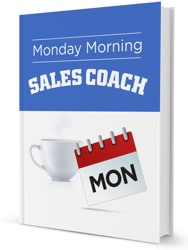Active Listening
People need to trust you in a selling situation. Without trust, people will not feel comfortable opening up to you and sharing their concerns, fears, and hopes. And if they won’t open up and have a meaningful discussion about their business issues with you, you’re unlikely to win the business. Being seen as a trusted advisor is critical.
An important part of gaining someone’s trust and being a good communicator is to be a great listener. Next to survival, one of the greatest needs we have as human beings is the need to be understood.
Known for their “gift of gab,” salespeople, unfortunately, seem to spend most of their time in transmit mode when they should be in receive mode.
Poor listening habits can lead to numerous misunderstandings and conflicts. Research indicates that, on average, we retain about 50% of the main content of a ten-minute speech immediately after listening to it. A conservative estimate is that most people retain no more than 25% of what they hear after two days.
People often listen with the intent to respond, instead of listening with the intent to understand. In a sales situation, that’s a big problem since your job is to gain a complete understanding of the prospect’s issues.
Basically, we communicate in four ways. We speak, we write, we read, and we listen. The first three we learned in school, but the classes on listening were few and far between. As a result, most people are poor listeners, even though it is one of the most important inter-personal skills. We typically listen at one of the following levels:
Prospect says, “We won’t hit our numbers this year.”
| Response | Examples |
| Non-verbal | Nodding head, leaning forward |
| Neutral | “Uh-huh”…“I see.” |
| Mimicking | “You won’t hit your numbers this year.” |
| Restating | “So you’ll miss your plan?” |
| Reflecting | “Sounds like you’re upset.” |
| Encouraging | “Tell me more.”…“What else is there?” |
| Summarizing | “You seem quite frustrated by your company’s performance this year.” |
Put yourself in the other person’s shoes. If you were talking to someone about something that was important to you, which types of the above responses would resonate most with you?
Add some of these types of active listening responses to your repertoire and watch your ability to communicate more effectively skyrocket.
Self-Study Assignment: How good a listener are you? Are you dominating the conversation, or practicing active listening? On your next call, make a concerted effort to be a better listener, and see how much more information you are able to get.


